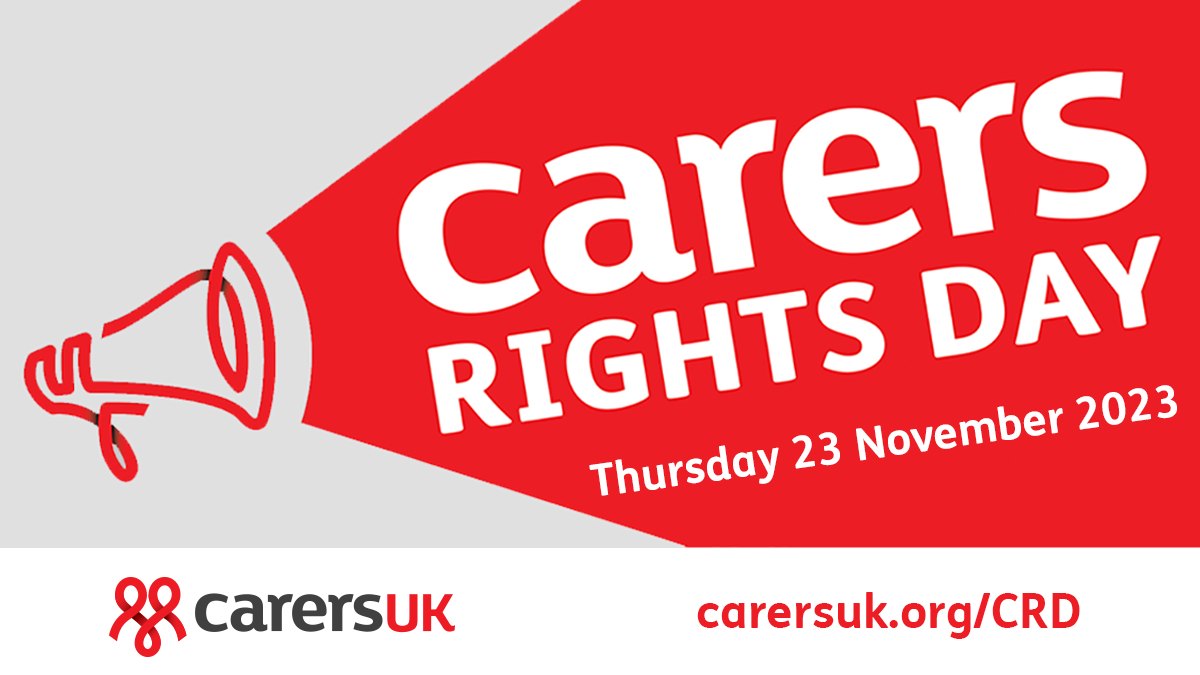Checkpoint: 'Are You A Carer?'
Many people don't consider themselves to be a Carer until a Crisis happens. Here are some useful facts, figures and signposting to support you.
Ahead of Carer Rights Day, Thursday 23rd November, are you helping your parents or someone you know with some shopping or daily tasks? Or perhaps, you check in on some neighbours? Are you finding that some people are becoming more reliant on you to help them? Perhaps you help with some digital requests or paperwork? Do you identify yourself as a Carer?
The Issue?
Many carers simply do not recognise themselves as carers until they have been caring for quite some time. Carers UK State of Caring Survey 2022 found that half of all carers (51%) took over a year to recognise their caring role, with over a third (36%) taking over three years to recognise themselves as a carer.
Who is a carer?
A carer is a person of any age who provides unpaid care and support to a family member, friend or neighbour who is disabled, has an illness or long-term condition, or who needs extra help as they grow older.
If we’re caring for someone, it can be very rewarding but it can also take its toll on health and well-being, on the ability to work, on personal time and relationships with family and friends, and on finances. Because caring is often seen as part and parcel of life, help is often not sought out early enough until things get tougher; a crisis point. Some people say that identifying themselves as a carer can be empowering. Others want a choice about how they are regarded or called. Many feel marginalised, invisible, and unheard. BUT Everyone wants a choice about support.
Did you know? Key Facts
The most recent UK Census 2021 puts the estimated number of unpaid carers at 5 million in England and Wales. This, together with ONS Census data for Scotland and Northern Ireland, suggests that the number of unpaid carers across the UK is 5.7 million.
This means that around 9% of people are providing unpaid care. However, Carers UK research in 2022 estimates the number of unpaid carers could be as high as 10.6 million (Carers UK, Carers Week 2022 research report).
4.7% of the population in England and Wales are providing 20 hours or more of care a week.
Over the period 2010-2020, every year, 4.3 million people became unpaid carers – 12,000 people a day (Petrillo and Bennett, 2022).
59% of unpaid carers are women (Census 2021). Women are more likely to become carers and to provide more hours of unpaid care than men. More women than men provide high intensity care at ages when they would expect to be in paid work (Petrillo and Bennett, 2022)
One in seven people in the workplace in the UK are juggling work and care (Carers UK, Juggling Work and Care, 2019).
Between 2010-2020, people aged 46-65 were the largest age group to become unpaid carers. 41% of people who became unpaid carers were in this age group (Petrillo and Bennett, 2022).
Why caring matters
Carers are holding families together, enabling those they care for to get the most out of life, making an enormous contribution to society and saving the economy billions of pounds. Carers are the backbone of our national healthcare system and community health. Yet many are stretched to the limit – juggling care with work and family life, struggling to make ends meet and often battling with poor health themselves.
You don’t have to care alone
Looking after someone can be a rewarding experience. It can also be tough, lonely and bewildering. But you’re not on your own. Carers UK can listen, and give you expert information and guidance, to champion your rights and to support you in finding new ways to manage at home, at work, or wherever you are.
Carer Advocacy and support
There’s a role to play for everyone in helping carers to identify themselves, whether it’s family and friends, health and social care, community organisations, or employers. It’s also critical that there are sound systems in place to help carers identify themselves, linking carers to further support so they don't miss out. There are many ways that identifying carers can help employers, public services, families and communities reach greater potential. Care, be Aware. Prepare and Engage. (CAPE) Carers are not superheroes, they are you and me, people who need support and valued for all they do.
When you're talking with friends and family, consider whether they are Carers in need of additional advice and support. Ask them to check with experts like Carers UK. Perhaps, this website could offer some empathetic support for them. Ask them whether an online forum like Carers Connect or the mobilise community could provide a space for them to interact so they don’t feel so alone.


